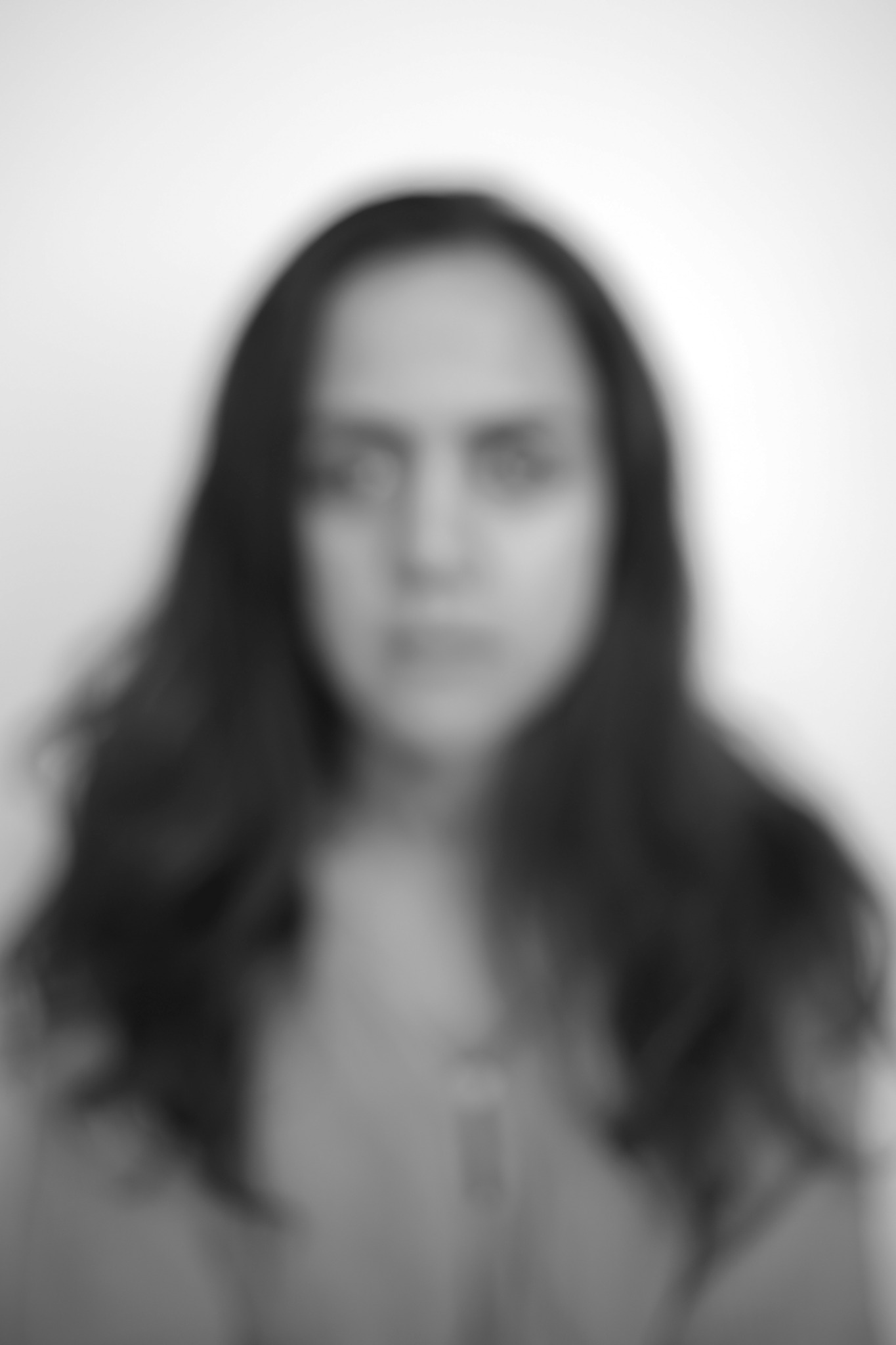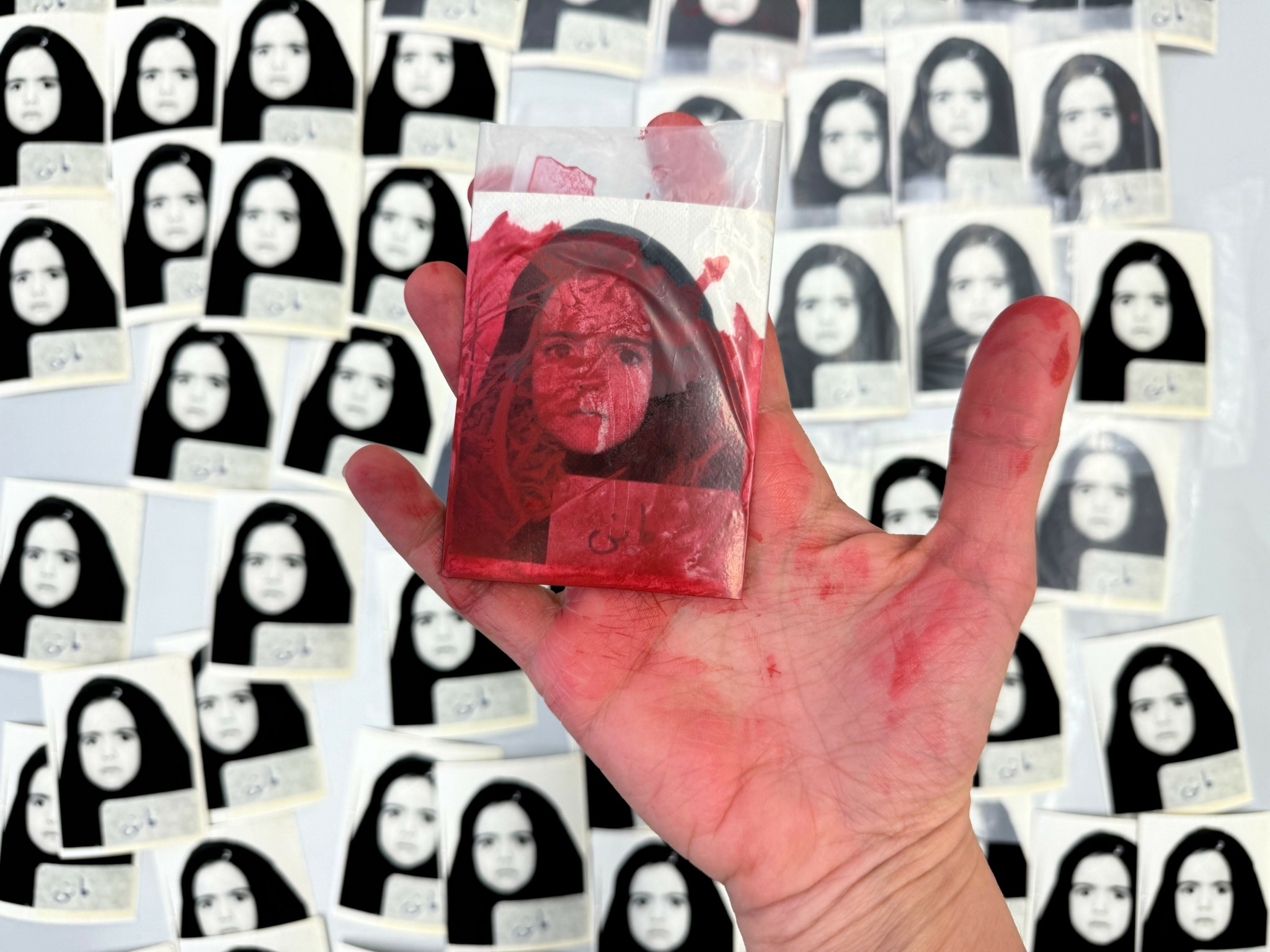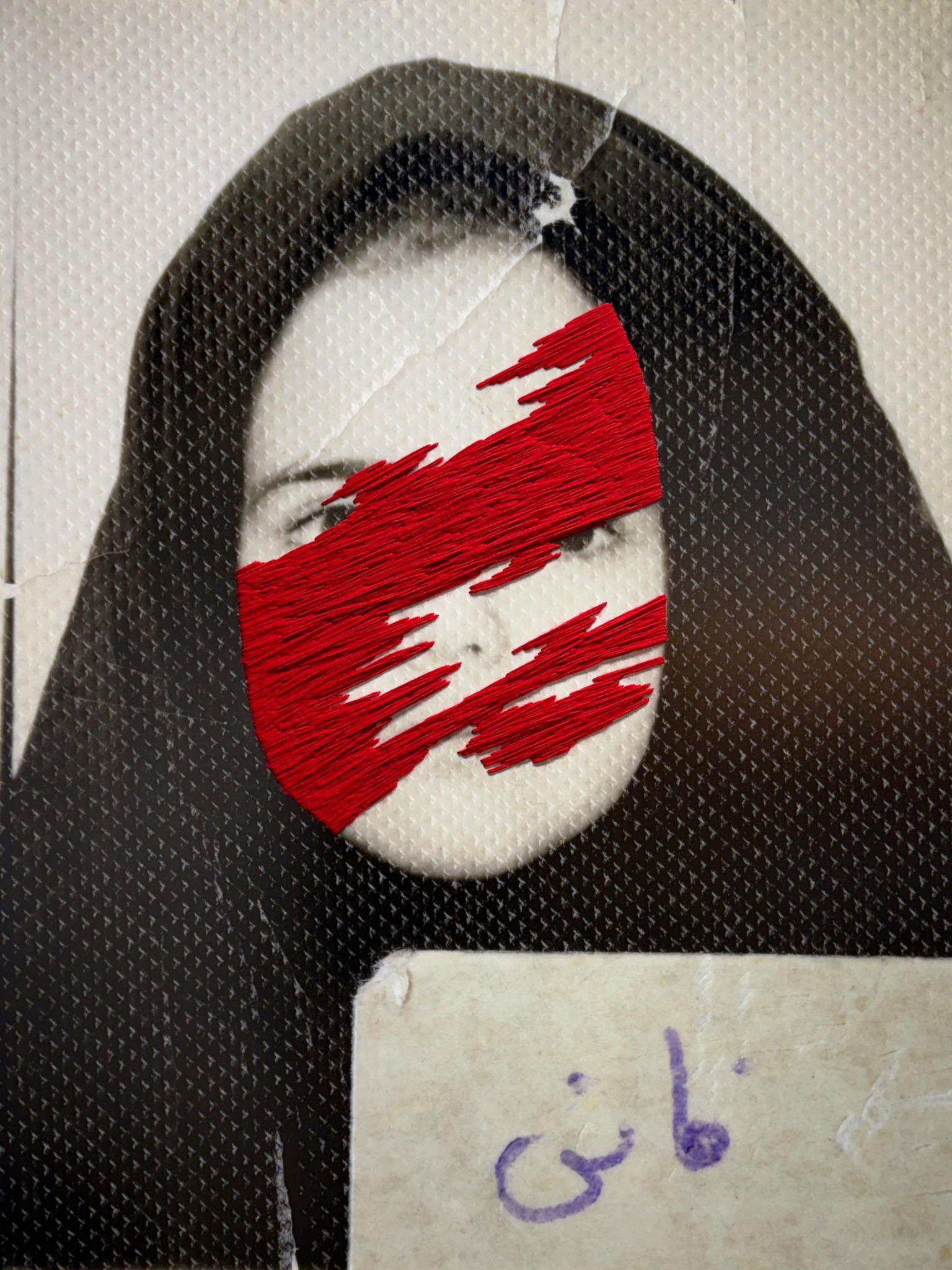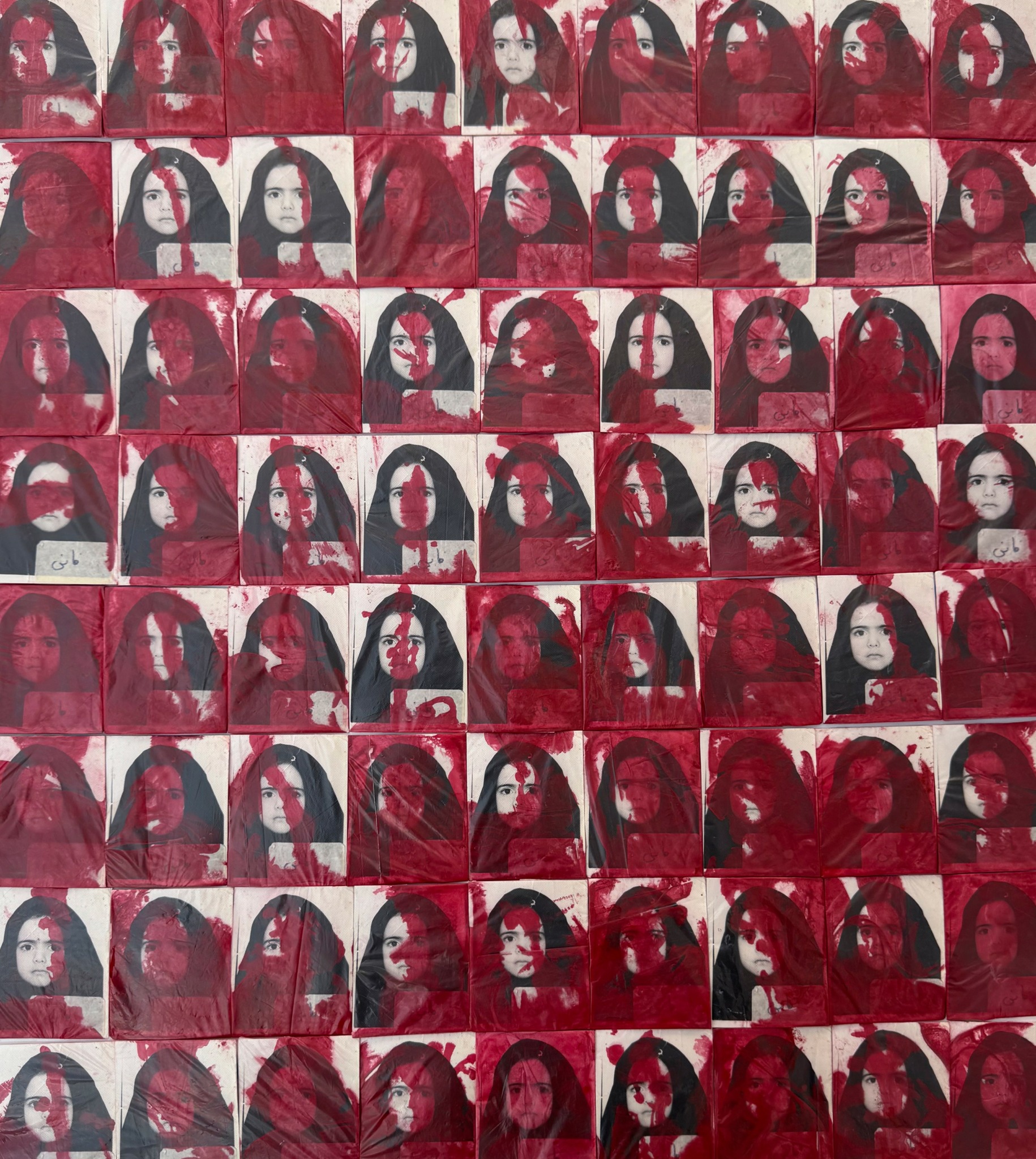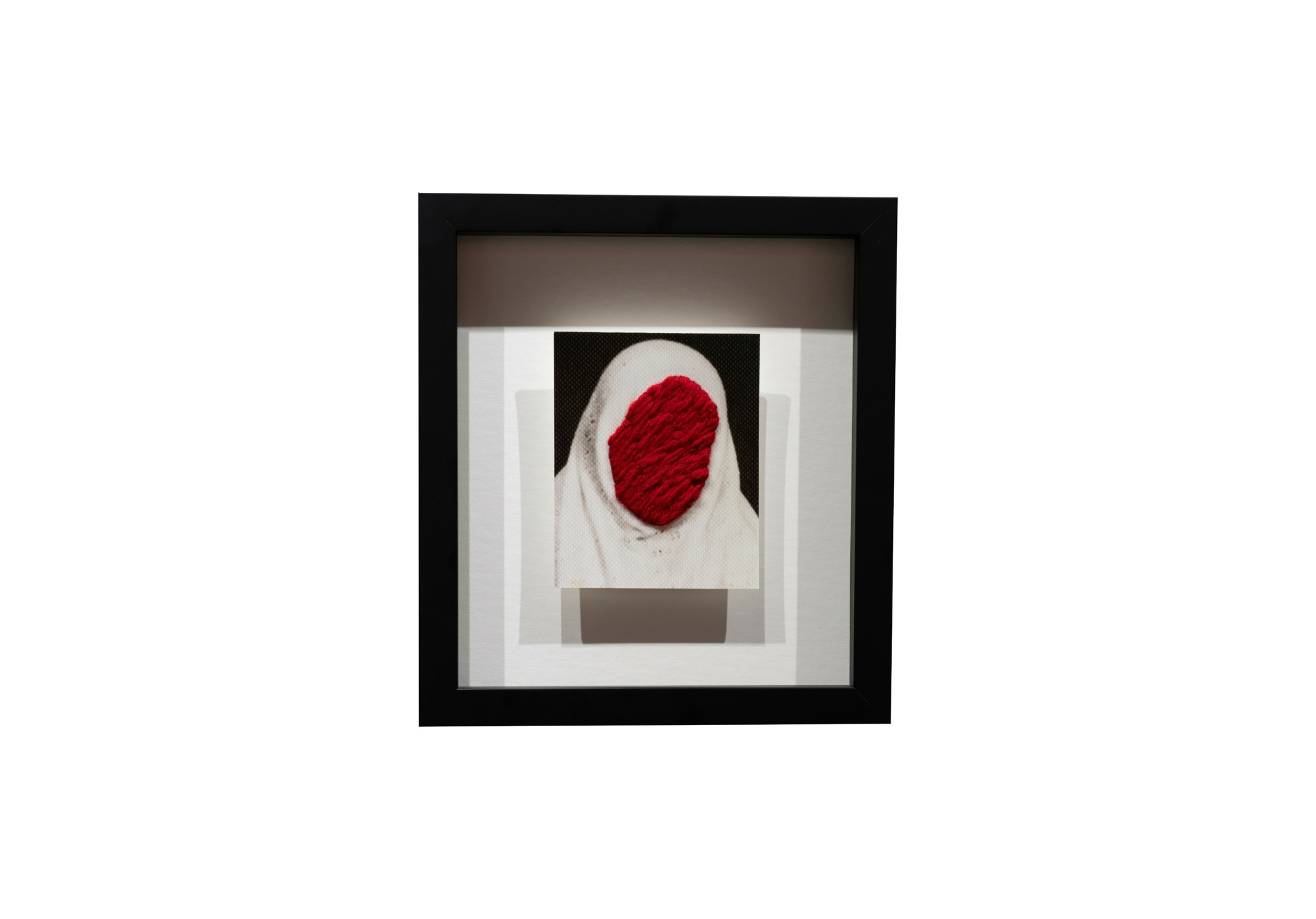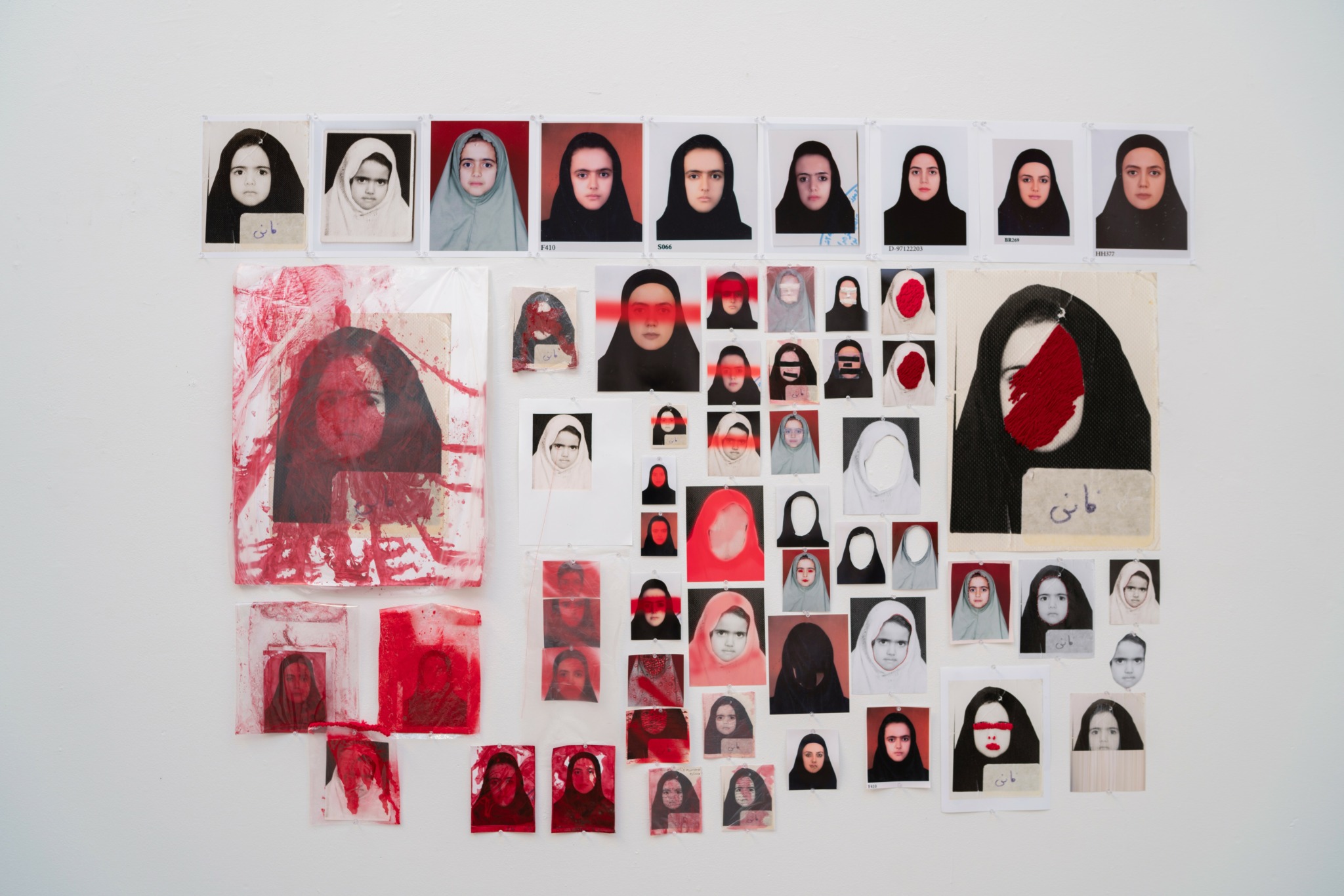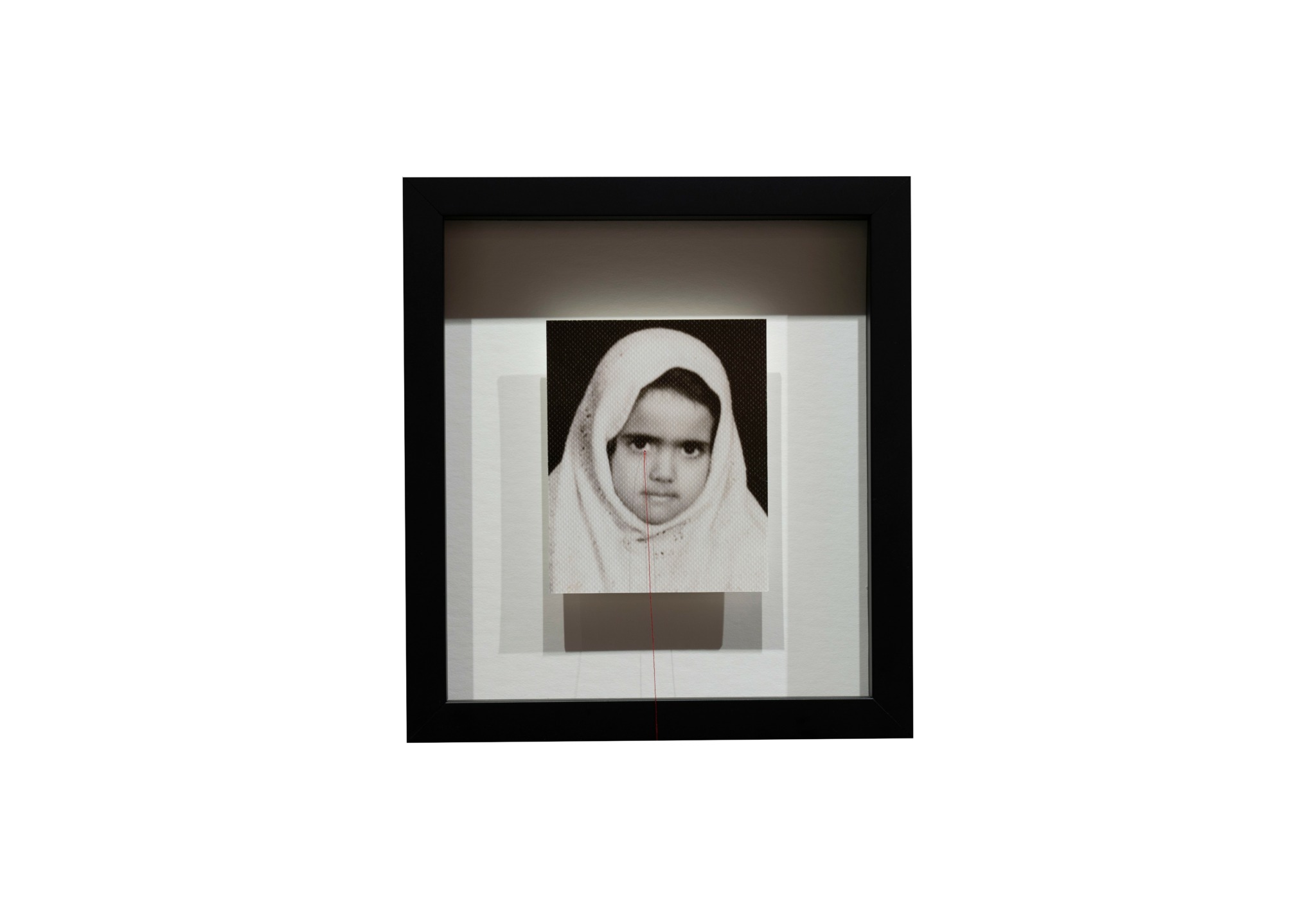Today we’d like to introduce you to Fatemeh Fani.
Hi Fatemeh, please kick things off for us with an introduction to yourself and your story.
I immigrated to the U.S. right after the Women, Life, Freedom movement started following the death of Mahsa Amini, a 22-year-old Iranian woman who was killed by the morality police for not wearing the “proper” hijab. Mahsa wasn’t the first and only victim of this violence since this has been happening every single day. Since I’ve arrived in the U.S., my studio practice has been dedicated to raising awareness of these horrific events, as the people in Iran are denied the media platforms needed to have their voices to be heard. More than half of the news from my country is either censored by the regime or silenced by foreign media. I have chosen to create art and speak about my personal trauma, which is part of a collective trauma, because in my own country, I never had the freedom to express my feelings or protest. “I wasn’t asked” is a research project based on my personal traumatic experience as an Iranian woman. By depicting how a simple object, a scarf, loses its primary function and turns into a means of violence, murder, rape, suppression and oppression. I started using my archival photographs I took for my ID cards throughout the years. From the age of 6 to 29 before I came here. My identity was shaped by this law, by this requirement. For years, I lived under the weight of a decision that was made for me. These archival photographs are a representation of the reality faced by every Iranian woman.
My research explores themes of loss, identity, and violence, questioning how trauma is preserved and remembered, while also reflecting on the silencing of voices and the delicacy of life. But this work is not just personal, these photos speak not only for me. The repetition of the image of this little girl serves 2 purposes: a connection to other girls and women who might feel the same, and the necessity of keeping their identities anonymous.
The mandatory hijab is not just a matter of clothing; it is a matter of control, of erasure, of violence. The state views women’s bodies as property, to be hidden, controlled, and policed by the law, and the hijab is symbolic of that power. By sewing, embroidering, and altering the images, I am transforming these moments of silence into a form of resistance. I chose embroidery because the very first scarves I was forced to wear were embroidered. Each thread I weave represents the reclaiming of my story, my identity, and my voice. The scars, the threads, the ruptures—these are visual metaphors for the violence and trauma that women have suffered under the regime. Embroidery, for me, is a delicate yet powerful way of holding my personal history in my hands. My Studio Practice entered a new phase which was aimed to express how the identity and humanity of an Iranian woman are stripped away. I started to make self-portraits for both remaking my archival photos and showing the Iranian women’s transition from legible to illegible.
We all face challenges, but looking back would you describe it as a relatively smooth road?
It has never been a smooth way. Living in a country with an Islamic background, strict and discriminatory laws towards women, being deprived of fundamental rights and freedom of speech, it has never been a chance to speak, express yourself, protest, and create art. Every day feels like a struggle for basic freedoms, and the fear of punishment keeps many from speaking out. There’s little room for change, and even less for self-expression.
Thanks – so what else should our readers know about your work and what you’re currently focused on?
I am a recent Iranian immigrant to the U.S.. I am an interdisciplinary artist and a second year MFA student in photography. I am a lecturer assistant at university of Wisconsin and I teach digital photography to non art majors. I am a documentary photographer and while I was living in Iran my work was known for my photos series of sexual minorities, immigrant and women to express how in traditional societies such as Iran these groups are deprived of fundamental rights and freedom of expression. As a recent woman immigrant to the U.S., I am documenting the essence of America through the lens of an outsider from an Islamic country with a distinct cultural background. I am also working on personal archival photographs, aimed at challenging the concept of mandatory hijab and the stolen identity of Iranian women. My intention is to raise awareness and draw attention to the prevailing restrictions, exclusions, and discriminations that affect a significant portion of my country’s populace, with a particular focus on the challenges faced by women.
I take great pride in my hard work, resilience, courage, and unwavering optimism—qualities that have always driven me forward and shaped my journey. Also the fact that I am using art as an act of protest and resistance as well as for advocacy and hopefulness.
What sets me apart from others is that My work is deeply rooted in personal experience, drawing inspiration from lived realities that shape my perspective. Grounded in rigorous research and true stories, my practice goes beyond observation to challenge narratives and evoke deeper conversations.
Is there any advice you’d like to share with our readers who might just be starting out?
My advice for those just starting out is to always trust your instincts, as your intuition is often the most honest guide in your creative journey. Believe in yourself and the uniqueness of your perspective, even when faced with doubt or external pressures. Never limit yourself—experiment fearlessly, push beyond comfort zones, and embrace the unknown, because true growth comes from taking risks and staying true to your vision
I wish I knew when I was starting out that In the art world, building meaningful connections and finding a community that understands your work is just as crucial as the work itself. Opportunities, growth, and lasting impact often emerge not in isolation, but through relationships with those who truly resonate with your vision.
Contact Info:
- Website: https://fatemehfani.weebly.com/home.html
- Instagram: Fatemehhh_faniii
- LinkedIn: https://www.linkedin.com/feed/
